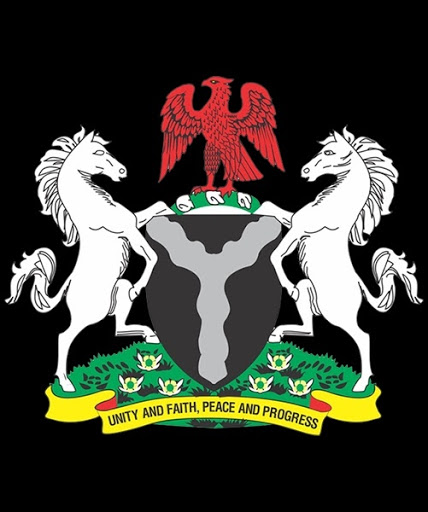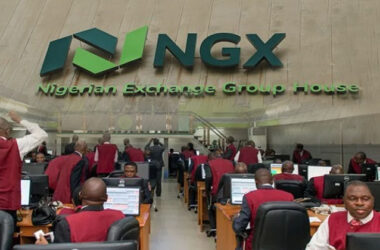As Nigeria navigates the complexities of a global economy, its business landscape is witnessing significant shifts. These changes are driven by a combination of domestic policies, global economic trends, and the rising influence of technology. With both challenges and opportunities in sight, businesses across sectors are adapting to new realities.
The Digital Revolution: Reshaping Industries
One of the most notable shifts in Nigeria’s business landscape is the growing dominance of the digital economy. From fintech to e-commerce, Nigeria’s tech sector has become a crucial engine of growth, contributing significantly to GDP and creating jobs. Companies such as Paystack, Flutterwave, and Jumia have not only attracted foreign investment but also revolutionized how Nigerians interact with businesses and financial services.
This digital wave is not confined to tech startups alone. Traditional industries, including banking, telecommunications, and even agriculture, are leveraging digital solutions to enhance efficiency, reach more customers, and streamline operations. Mobile money, digital lending platforms, and online marketplaces are driving financial inclusion, particularly in rural areas.
Government Policies and Economic Reforms
The Nigerian government’s economic policies continue to play a critical role in shaping the business environment. Key initiatives such as the Central Bank of Nigeria’s foreign exchange reforms, import substitution strategies, and interventions in critical sectors like agriculture and manufacturing are aimed at boosting local production and reducing dependence on imports.
However, these policies have sparked mixed reactions among businesses. While some view them as necessary steps toward self-reliance, others are concerned about the short-term impact of inflation, exchange rate volatility, and high borrowing costs. The recent removal of fuel subsidies, for instance, has led to a rise in transportation costs, affecting businesses across the country.
Rising Inflation and Cost of Living
Inflation remains a significant challenge for Nigerian businesses. With inflation rates hovering around 20% and the cost of living on the rise, consumer purchasing power has weakened. This has led to reduced demand for goods and services, especially in non-essential sectors like retail and hospitality.
Businesses are now faced with the difficult task of balancing rising operational costs with the need to keep prices competitive. Many companies are turning to cost-saving measures, automation, and strategic partnerships to remain profitable amid these economic pressures.
Renewable Energy: A Growing Focus
Nigeria’s energy sector is at a critical juncture, with increasing emphasis on renewable energy solutions. As power shortages and unreliable electricity remain key issues for businesses, many are turning to solar power and other renewable energy sources to meet their energy needs.
The government’s push toward renewable energy through policies such as the Solar Power Naija initiative is opening up new opportunities for investment. Businesses that adopt sustainable energy solutions are not only reducing their operational costs but also aligning with global sustainability goals, which can attract foreign investments and partnerships.
The Role of SMEs in Economic Growth
Small and Medium Enterprises (SMEs) remain the backbone of Nigeria’s economy, contributing to over 40% of the nation’s GDP. Despite the challenges of limited access to finance, infrastructure gaps, and regulatory bottlenecks, SMEs continue to thrive, particularly in sectors such as retail, agriculture, and services.
The rise of digital platforms and mobile technology is providing SMEs with greater access to markets and customers. Fintech innovations have made it easier for these businesses to secure loans, process payments, and manage transactions efficiently. As SMEs continue to play a vital role in employment and innovation, fostering their growth will be key to Nigeria’s long-term economic success.
Global Market Dynamics and Nigeria’s Position
Nigeria’s position in the global market is becoming increasingly important as it seeks to diversify its economy beyond oil. The African Continental Free Trade Area (AfCFTA) presents a unique opportunity for Nigerian businesses to expand into other African markets. However, to fully capitalize on this, businesses will need to invest in infrastructure, improve product quality, and enhance competitiveness.
Additionally, global economic trends such as fluctuating oil prices, shifts in demand for raw materials, and geopolitical tensions are influencing Nigeria’s trade relationships. Businesses must remain agile and responsive to these changes to secure their position in the global.
Speaking on this issue, Oluwafemi Fagbemi, a seasoned economic expert, believes that Nigeria’s business landscape is undergoing a critical transformation, driven by both internal and external factors. He emphasizes that the convergence of technology, government policies, and global economic trends will be pivotal in shaping the future of Nigerian businesses.
According to Fagbemi, the digital revolution is one of the most significant trends reshaping Nigeria’s economy. “Tech innovations, particularly in fintech and e-commerce, have redefined how businesses operate. They’ve opened up new opportunities for growth, especially for small and medium-sized enterprises (SMEs),” he says. He further highlights how digital platforms are fostering financial inclusion, allowing more Nigerians to access banking services and transact online. “The rise of fintech solutions has lowered the barriers to accessing financial services, especially for the unbanked and underbanked populations in rural areas.”
On the subject of government policies, Fagbemi acknowledges that while reforms like the removal of fuel subsidies and foreign exchange adjustments are essential for long-term economic stability, their immediate impact has been challenging for businesses. “Inflation and rising operational costs are pushing businesses to adopt innovative solutions,” he notes. Fagbemi believes that these reforms, though painful in the short term, will eventually reduce Nigeria’s dependence on imports and lead to a more self-sufficient economy.
Fagbemi also underscores the importance of the renewable energy sector in Nigeria’s economic future. “The shift towards sustainable energy solutions presents a huge opportunity for businesses. Power shortages have been a longstanding problem for Nigerian businesses, and renewable energy offers a viable alternative. It’s not just about reducing costs; it’s about creating a more resilient energy supply,” he explains.
When it comes to SMEs, Fagbemi is optimistic about their potential to drive economic growth. However, he stresses that more support is needed in terms of financing and infrastructure. “SMEs are the backbone of Nigeria’s economy, but they face numerous hurdles. Access to finance is still a major issue. While fintech platforms are making progress, more needs to be done to support these businesses with affordable loans and grants.”
Fagbemi also highlights Nigeria’s position in the global economy, especially in light of the African Continental Free Trade Area (AfCFTA). He believes that Nigerian businesses need to scale up and improve competitiveness to fully benefit from this agreement. “AfCFTA is a game-changer, but only if Nigerian businesses can meet the quality and scale demanded by other African markets. There’s a lot of potential, but we need better infrastructure and policies to support this expansion.”
In conclusion, Fagbemi is cautiously optimistic about Nigeria’s economic future. He believes that businesses that embrace digital transformation, focus on sustainability, and adapt to changing policies will thrive in this new landscape. However, he warns that without proper support, the challenges of inflation, rising costs, and infrastructure deficits could slow down progress. “The key is adaptability. Nigerian businesses have always been resilient, but they now need to be more innovative than ever to stay ahead in this rapidly evolving environment.”
Also speaking, James Ike, a respected business consultant, sees Nigeria’s current economic landscape as a pivotal moment for businesses to rethink their strategies and operations. According to him, the convergence of technology, economic reforms, and global market dynamics is reshaping the way businesses navigate opportunities and challenges in Nigeria.
Ike points out that the digital transformation sweeping across industries is a game-changer. “In today’s business climate, technology is no longer optional—it’s essential. Nigerian businesses, especially SMEs, have to embrace digital tools to remain competitive. Fintech, for example, has provided easier access to financial services and credit, opening new avenues for growth,” he explains. He believes that businesses that leverage e-commerce, data analytics, and digital payments will lead in their respective sectors, especially as consumer behavior shifts toward online platforms.
However, Ike also notes that the rapid adoption of technology comes with its own set of challenges. “While the tech-driven economy is promising, businesses need to be aware of cybersecurity risks and the need for digital literacy. There’s also the challenge of infrastructure—unreliable internet and electricity can slow down the gains we’re seeing in the digital space.”
In terms of government policies, Ike recognizes both the opportunities and disruptions. “Economic reforms, such as the removal of fuel subsidies and the shift in forex policies, are necessary for long-term growth. However, the immediate effect is inflation and rising costs, which businesses are struggling with.” He advises businesses to focus on operational efficiency, cost-saving measures, and strategic investments to survive these difficult times. “Businesses need to adapt quickly to changing regulations, especially those that impact their bottom line, such as energy costs and currency fluctuations.”
Ike is particularly interested in the growing emphasis on renewable energy. “Businesses can no longer depend on the national grid, which is unreliable. The shift toward solar energy and other renewables is not just an environmental decision—it’s a strategic one. Those that invest in sustainable energy solutions can significantly reduce their operational costs and become more competitive in the long run.”
On the subject of global trade, Ike stresses the importance of the African Continental Free Trade Area (AfCFTA). He believes that Nigerian businesses have a unique opportunity to expand into new markets across Africa, but they must improve their competitiveness. “AfCFTA presents endless possibilities, but Nigerian businesses need to ensure their products and services meet international standards. Improved logistics, better infrastructure, and regulatory reforms are necessary if we are to truly benefit from this trade agreement.”
For SMEs, which make up a large part of the Nigerian economy, Ike highlights the critical need for financing. “Access to affordable capital remains a bottleneck for SMEs. While fintech solutions are filling some gaps, more needs to be done by both the government and private sector to create financing channels that are accessible to small businesses.”
Ike concludes that while Nigeria’s business landscape is fraught with challenges, it is also ripe with opportunities for those who can innovate and adapt. “The key to success in this economy is agility. Businesses must be ready to pivot and embrace new technologies, while keeping an eye on cost efficiency and sustainability. Those that do will thrive despite the economic pressures.”
The Path Forward
Nigeria’s business landscape is undergoing rapid transformation, driven by technological advancements, government policies, and global market forces. While challenges such as inflation, rising costs, and infrastructure deficits persist, the resilience and innovation of Nigerian businesses offer hope for sustained growth.
To thrive in this evolving environment, businesses must remain adaptive, embrace new technologies, and explore opportunities in emerging sectors such as renewable energy and digital services. As Nigeria continues to navigate these changes, the ability of its business leaders to anticipate and respond to trends will determine the nation’s economic trajectory for years to come.









